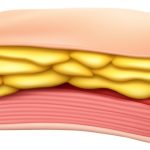Menopause can bring a mix of emotions. Could changing what you eat make a real difference in how you feel during this time? This isn’t about fad diets; it’s about the connection between plant-based eating and easing common menopause symptoms. For more on reducing inflammation, check out these anti-inflammatory foods. Let’s explore how a plant-focused diet can help with hot flashes, night sweats, mood swings, weight management, and sleep disturbances. We’ll provide practical tips and sample meal plans to make it work for you and tackle some of the science around menopause onset and plant-based diets, empowering you to take charge of your health during this change.
Easing Menopausal Symptoms with a Plant-Based Diet
Menopause brings hormonal shifts and a range of symptoms. A plant-based diet can be a natural approach to ease discomfort during this time, so let’s explore adopting more plants to navigate menopause more comfortably.
Managing Menopausal Symptoms with Plants
Many women find that shifting to a plant-focused diet eases common menopause symptoms. These can include hot flashes, night sweats, mood swings, weight fluctuations, vaginal dryness, fatigue, and sleep problems. Plant foods are rich in phytoestrogens, antioxidants, fiber, vitamins, and minerals. This combination may help balance hormones, reduce inflammation, support healthy digestion, and promote a healthier weight.
Research suggests a link between plant-rich diets and improved management of these symptoms. Studies indicate that women on plant-based plans report reduced hot flash frequency and intensity, better sleep quality, and improved mood stability. Focus on whole, unprocessed plant foods for the best results.
Sample One-Day Plant-Based Menopause-Friendly Meal Plan:
- Breakfast: Oatmeal with berries, chia seeds, flax seeds, and walnuts or almonds. Add a scoop of plant-based protein powder for an extra boost.
- Lunch: Large salad with mixed greens, bell peppers, cucumbers, carrots, lentils or chickpeas, a variety of seeds, and a lemon vinaigrette.
- Dinner: Lentil soup with plenty of non-starchy vegetables (broccoli, spinach, kale) and a side of quinoa.
- Snacks: Fruit, raw veggies with hummus, a small handful of mixed nuts, or a soy yogurt.
Understanding Menopause Onset: The Role of Diet and Other Factors
While a plant-based diet is helpful for managing menopause symptoms, its influence on when menopause begins is still being researched. Some studies suggest a possible link between specific plant compounds (like soy isoflavones) and a slightly later onset of menopause, but other studies haven’t found a significant connection. The timing of menopause is complex and influenced by factors like genetics, ethnicity, overall health, smoking habits, and socioeconomic factors, making it difficult to isolate the specific impact of diet. More extensive research is needed to understand the relationship between plant-based diets and menopause onset fully.
Crafting Your Personalized Plant-Based Plan
Here’s a step-by-step guide to personalize your approach to a plant-based diet for menopause:
- Start Gradually: Begin by adding one or two plant-rich meals per week and gradually increasing the amount.
- Prioritize Whole Foods: Focus on fruits, vegetables, legumes, whole grains, nuts, and seeds. Choose a wide variety of colorful options.
- Seek Professional Guidance: A registered dietitian specializing in women’s health or plant-based nutrition can create a plan tailored to your specific needs, health history, and preferences.
- Listen to Your Body: Pay attention to how different foods affect you and adjust your choices accordingly.
- Stay Hydrated: Drink plenty of water throughout the day to help with digestion, energy levels, and overall well-being.
- Manage Stress: Incorporate stress-reducing activities like yoga, meditation, or spending time in nature.
- Ensure Adequate Protein Intake: Include protein-rich plant foods in every meal to support muscle mass and satiety.
- Address Potential Nutrient Deficiencies: Plan your diet carefully to meet your needs for vitamin B12, vitamin D, iron, calcium, and omega-3 fatty acids. Consider supplementation if needed, under the guidance of a healthcare professional.
Transitioning to a plant-based diet might raise worries about nutrient deficiencies, especially vitamin B12, vitamin D, iron, calcium, and omega-3 fatty acids. With careful planning, fortified foods, and supplementation (under medical guidance), you can meet all nutritional needs.
A plant-based diet helps manage symptoms naturally and promote well-being, and combined with regular exercise, stress management techniques, and sufficient sleep, a plant-rich diet becomes a significant part of a healthy and fulfilling menopause journey. Remember to be patient, listen to your body, and enjoy the process of discovering what works best for you.
Key Takeaways:
- Plant-based diets can effectively manage many menopausal symptoms.
- Research on the impact on the timing of menopause onset is ongoing and inconclusive.
- A well-planned plant-based diet supports overall well-being during menopause.
- Personalized dietary plans are crucial for addressing individual needs and preferences.
- Consulting a registered dietitian or healthcare provider is highly recommended for guidance.
Managing Weight Gain During Plant-Based Menopause Transition
Key Takeaways:
* Menopause often leads to weight gain due to hormonal shifts and metabolic changes.
* A plant-based diet can be beneficial for weight management during menopause, but requires careful planning and attention to nutrient intake.
* Prioritizing protein and fiber is important for maintaining muscle mass and promoting satiety.
* Addressing potential nutrient deficiencies is essential for overall health and well-being.
* Regular exercise complements a healthy plant-based diet for weight management and overall health.
#### The Importance of a Strategic Approach
During menopause, you might notice changes in weight and increased body fat, particularly around the abdomen. While many women turn to plant-based eating for its health benefits, **managing weight gain during plant-based menopause transition** requires a strategic approach that focuses on optimizing your nutritional intake and maintaining a healthy lifestyle.
#### The Protein Puzzle
During menopause, hormonal changes can affect muscle mass, leading to a slower metabolism and potential weight gain. Prioritizing protein in your plant-based diet is key to preserving muscle mass and supporting satiety. Excellent plant-based protein sources include legumes (lentils, beans, chickpeas), tofu, tempeh, edamame, quinoa, nuts, seeds, and plant-based protein powders. Aim for 18-20% of your daily calories from protein, and consult your doctor or a registered dietitian to tailor this to your specific needs and activity level.
Simply switching to plants isn’t enough, so here's a look at potential nutritional concerns, along with strategies to address them:
| Nutrient | Potential Deficiency Risk | Plant-Based Sources | Supplements? |
| :---------- | :-------------------------- | :----------------------------------------------------- | :------------------------- |
| Vitamin B12 | Very High | Fortified foods (plant milks, nutritional yeast), supplements | Essential |
| Vitamin D | Moderate | Fortified foods, sunlight | May be needed, especially in winter |
| Iron | Moderate | Leafy greens, legumes, fortified cereals | Consider, especially if anemic |
| Calcium | Moderate | Leafy greens, fortified plant milks, tofu (calcium-set) | May be needed |
| Omega-3s | Moderate | Flaxseeds, chia seeds, walnuts, algae-based supplements | Consider |
A personalized plan from a healthcare professional is invaluable. Regular physical activity is a must, so incorporate both cardiovascular exercise and strength training into your routine to maintain muscle mass, boost metabolism, and improve your overall well-being. Find activities that you enjoy and that fit your lifestyle, making exercise a sustainable part of your routine.
#### Creating Your Personalized Plan
1. **Assess your current diet:** Track your food intake for a few days to identify areas for improvement. Use a food tracking app or a simple food diary.
2. **Increase protein gradually:** Incorporate more protein-rich plant foods into each meal and snack.
3. **Add varied whole foods:** Choose a wide variety of whole, unprocessed fruits, vegetables, legumes, nuts, seeds, and whole grains.
4. **Limit processed foods:** Reduce your intake of refined carbohydrates, sugary drinks, and processed plant-based foods.
5. **Stay hydrated:** Drink plenty of water throughout the day to support metabolism and satiety.
6. **Prioritize sleep:** Aim for 7-8 hours of quality sleep each night. Sleep deprivation can affect hormones and increase cravings.
7. **Manage stress:** Incorporate stress-reducing activities like meditation, yoga, or spending time in nature.
8. **Seek professional guidance:** Consult a registered dietitian specializing in women's health or plant-based nutrition for personalized support and guidance.
Remember to be kind to yourself, celebrate small victories, and trust the process. With careful attention to nutritional needs and lifestyle changes, you can thrive during this life stage.
Optimizing Sleep Quality with Plant-Based Diet in Perimenopause
Key Takeaways:
- A well-planned plant-based diet may help ease menopausal symptoms, potentially improving sleep quality.
- The
- Why Am I Always Thinking About Food? Your Body and Brain Explain - February 2, 2026
- Healthy Eating Is About Quality, Not Just Calories - February 1, 2026
- Healthy Living Products to Elevate Your Wellness Routine - January 31, 2026










